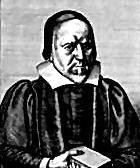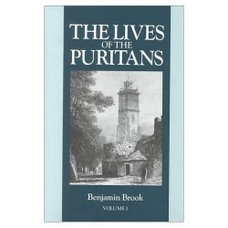Publications 20
Date: 1627
Pages: [20], 267, [1]
Copy from: British Library

Drawing attention to forgotten puritan Richard Bernard [1568-1641]. I came across him studying Puritan writings on the conscience. Some posts here began life on my personal blog.This prolific Puritan pastor and writer was author of The Faithfull Shepheard and his practice (1607, 1621), a handbook for ministers and an allegory called The Isle of Man (1627).
Labels: Guide to grand-jury men, Publications, witches
Labels: Isle of Man, Publications, Thomas Thynne
Labels: Catechism, redemption
 Title: A key of knowledge for the opening of the secret mysteries of St Iohns mysticall Reuelation By Ric: Bernard ... The contents ar in the next page before the booke
Title: A key of knowledge for the opening of the secret mysteries of St Iohns mysticall Reuelation By Ric: Bernard ... The contents ar in the next page before the bookeLabels: A staff of comfort, Publications
Labels: Publications, Two twins
Labels: Plain evidences, Publications, separatism
Labels: Catechism, redemption
Labels: Contemplative pictures, Publications
Labels: Catechism
Of our Creation
Q. Of what did God make man?
A. His body was of dust, the woman's of Adam‘s rib, Gen 2:7
Q. What a one did God make him?
A. Both good. Gen 2:31 holy and righteous Gen 1:26, Eph 4:28, Col 3:9
Q.What was then mans estate and happiness?
A. It was the state of innocence, without sin or misery and to God was he acceptable Gen 1:27, 12:25 & 1:28
Labels: Catechism, our creation
Labels: Publications, Sinners safety
Labels: Brownism, Councils of peace, Frances Wray, Publications
Labels: Biography, Contemporaries, William Cavendish
Labels: Catechism
Labels: Catechism, Publications
Labels: Faithful Shepherd, Publications
Q. What did your Godfathers and Godmothers promise for you?
A. They did promise and avow these things in my name, the first was that I should forsake the devil and his works, the pomps, the vanities of this wicked world, and all the sinful lusts of the flesh.
Q. What were you then bound to them, that you have promised to forsake them?
A. Yea verily by the corruption of my nature I am a bondslave to Satan, prone to all vice, having the seed of all sin in me and a condemner of God and of my neighbour
Q. How can you then forsake them or cease to do all evil, being thus bound and prone unto it?
A. Not by any natural power of myself but only by the grace of God hen it is given unto me.
Q. Are you sure you have forsaken them, are you not deceived?
A. I am not deceived; for I hate unfainedly the works of the devil, the world's vanity, all the ungodly manners of every man; and labour by all good means to love the works of god, to follow the godly and endeavour to kill speedily every ill motion but to cherish the good in my heart, by meditation, vows, fasting and prayer.
Labels: Catechism
 Part 1 - Of new birth
Part 1 - Of new birthLabels: Catechism
Labels: Catechism, Publications
Labels: Isle of Man
Labels: Isle of Man
Labels: Puritans
Labels: Isle of Man
Labels: Faithful Shepherd
Labels: Faithful Shepherd
Labels: Isle of Man
Labels: Isle of Man
Labels: Isle of Man
Labels: Faithful Shepherd
Labels: Biography, Contemporaries, Robert Balsom
Labels: Faithful Shepherd
Labels: Faithful Shepherd



